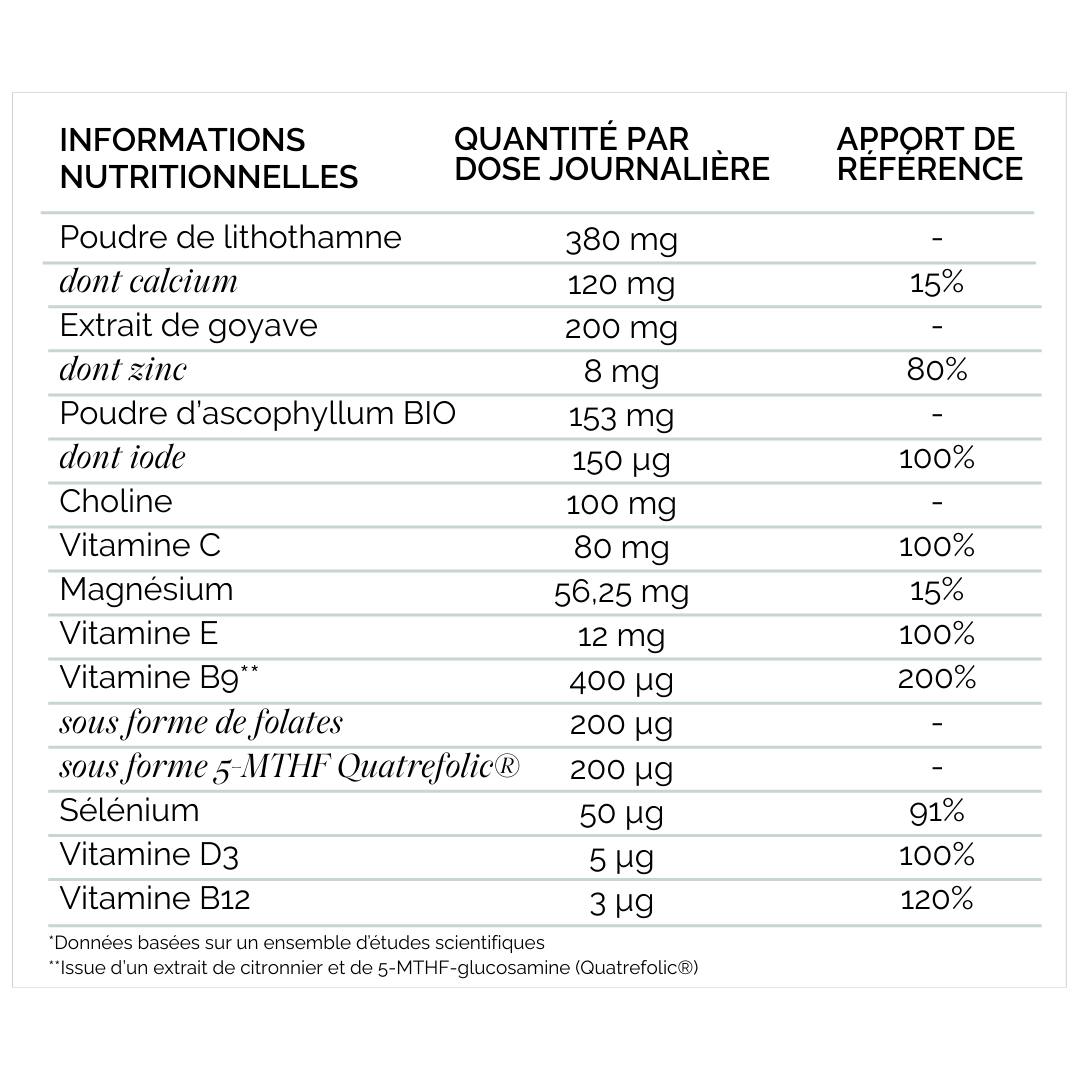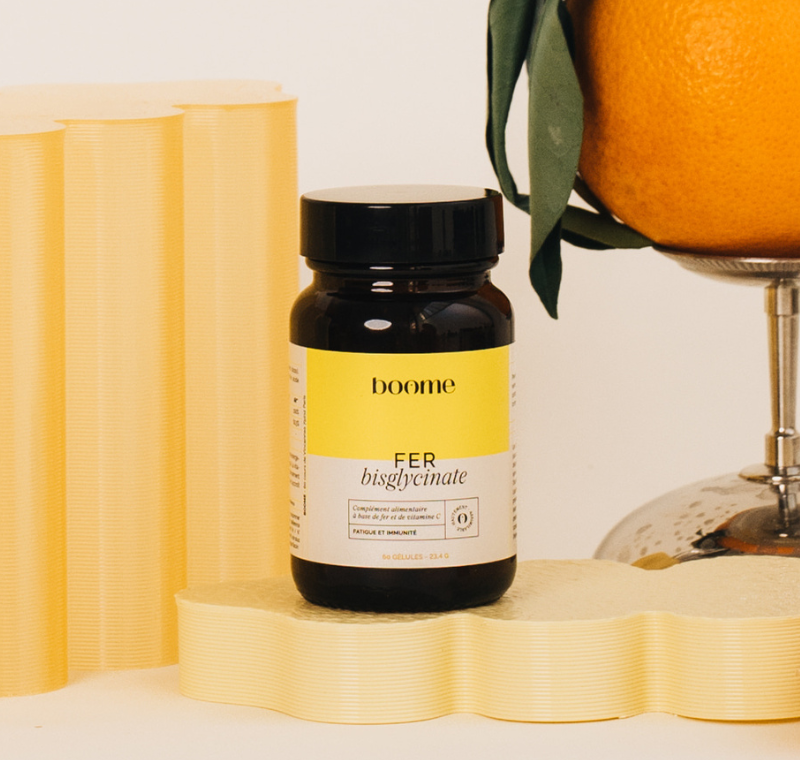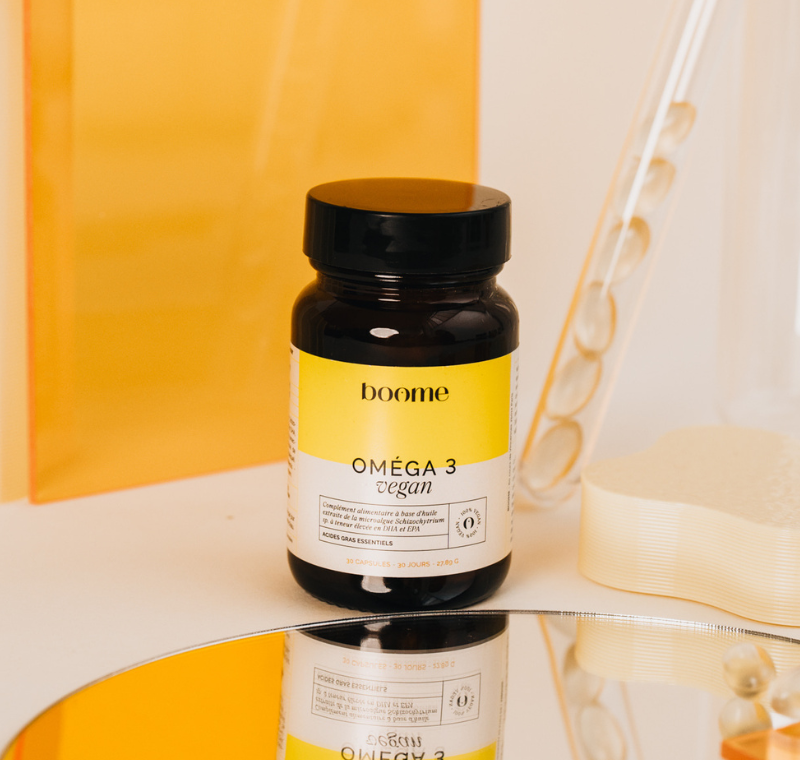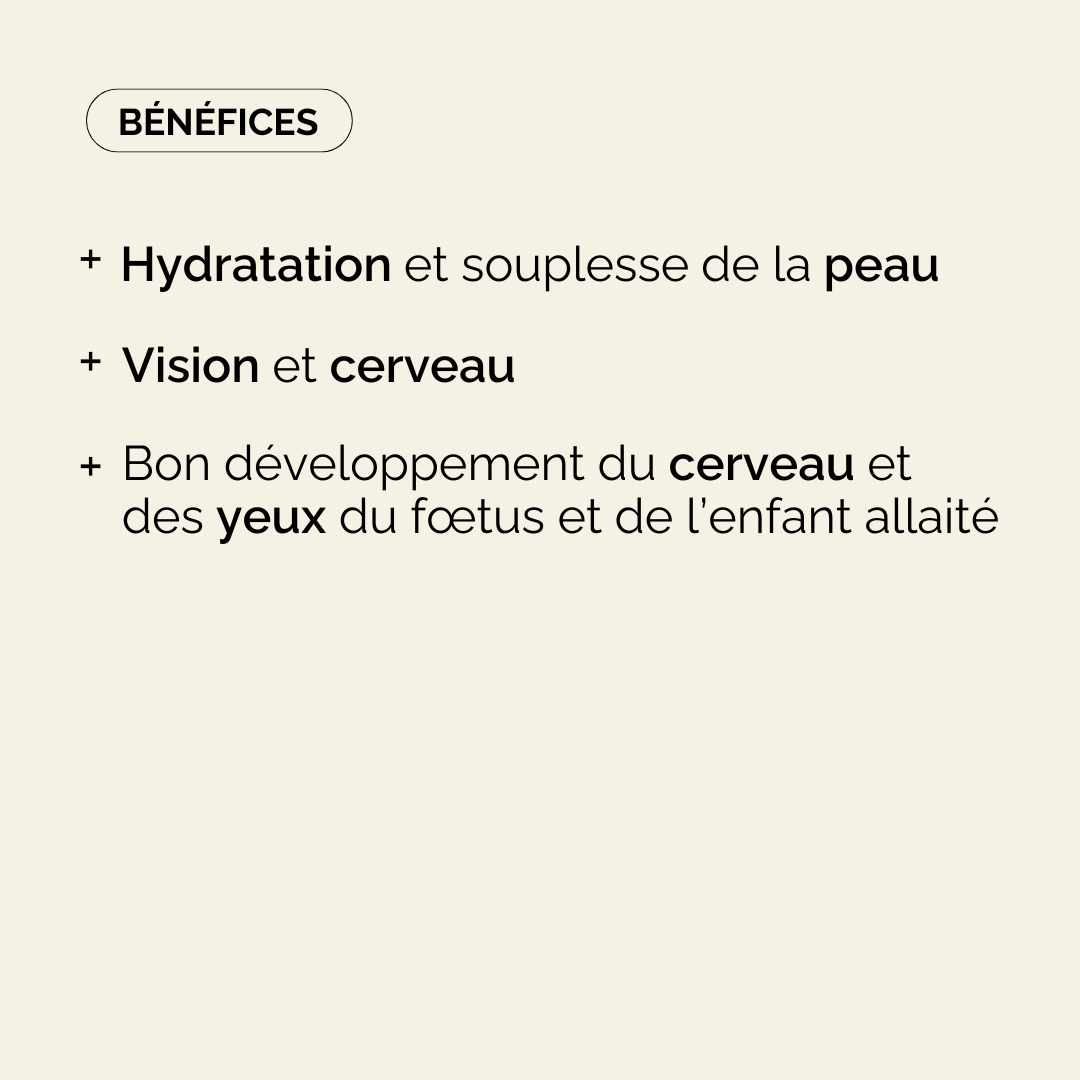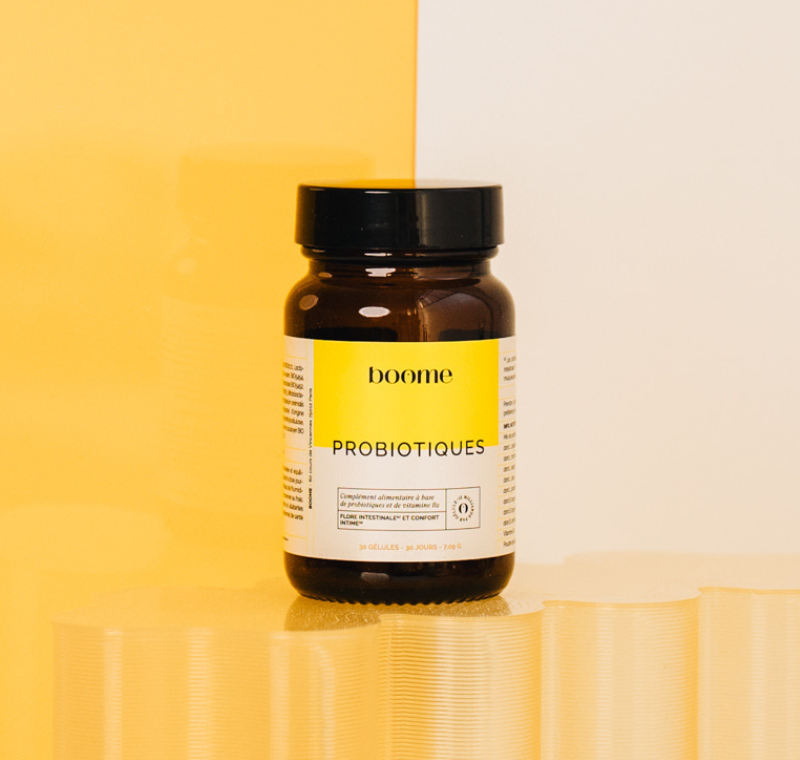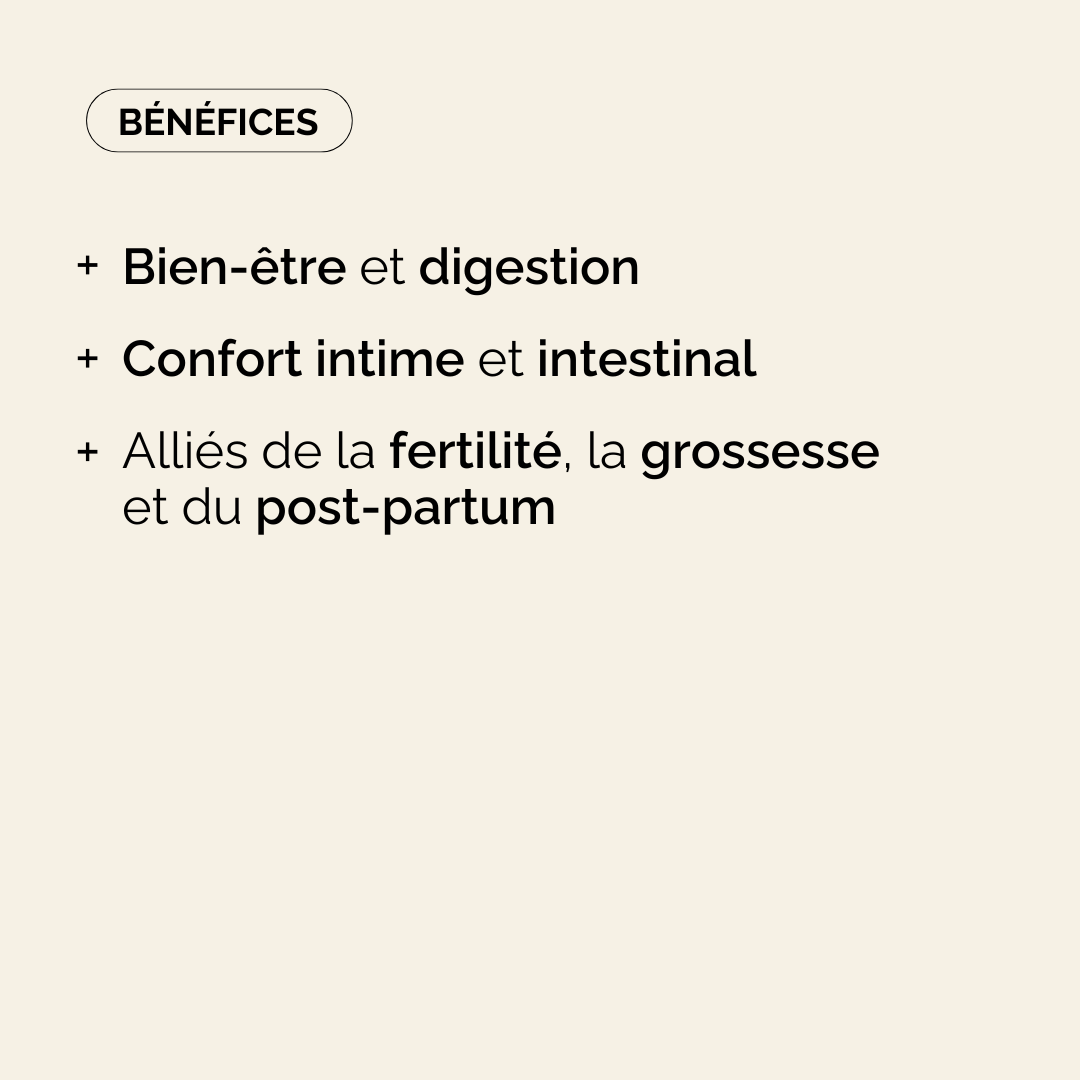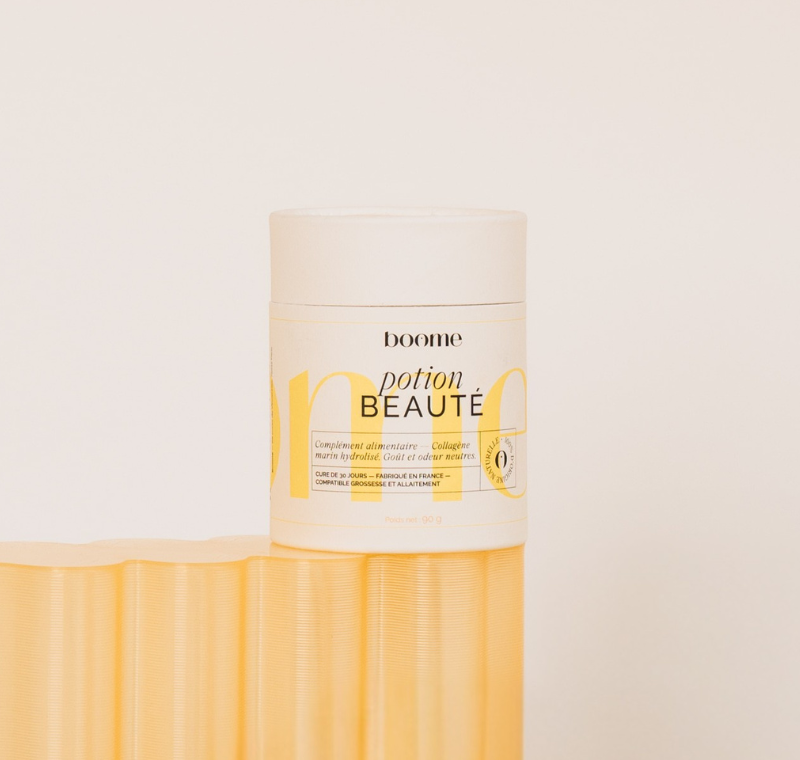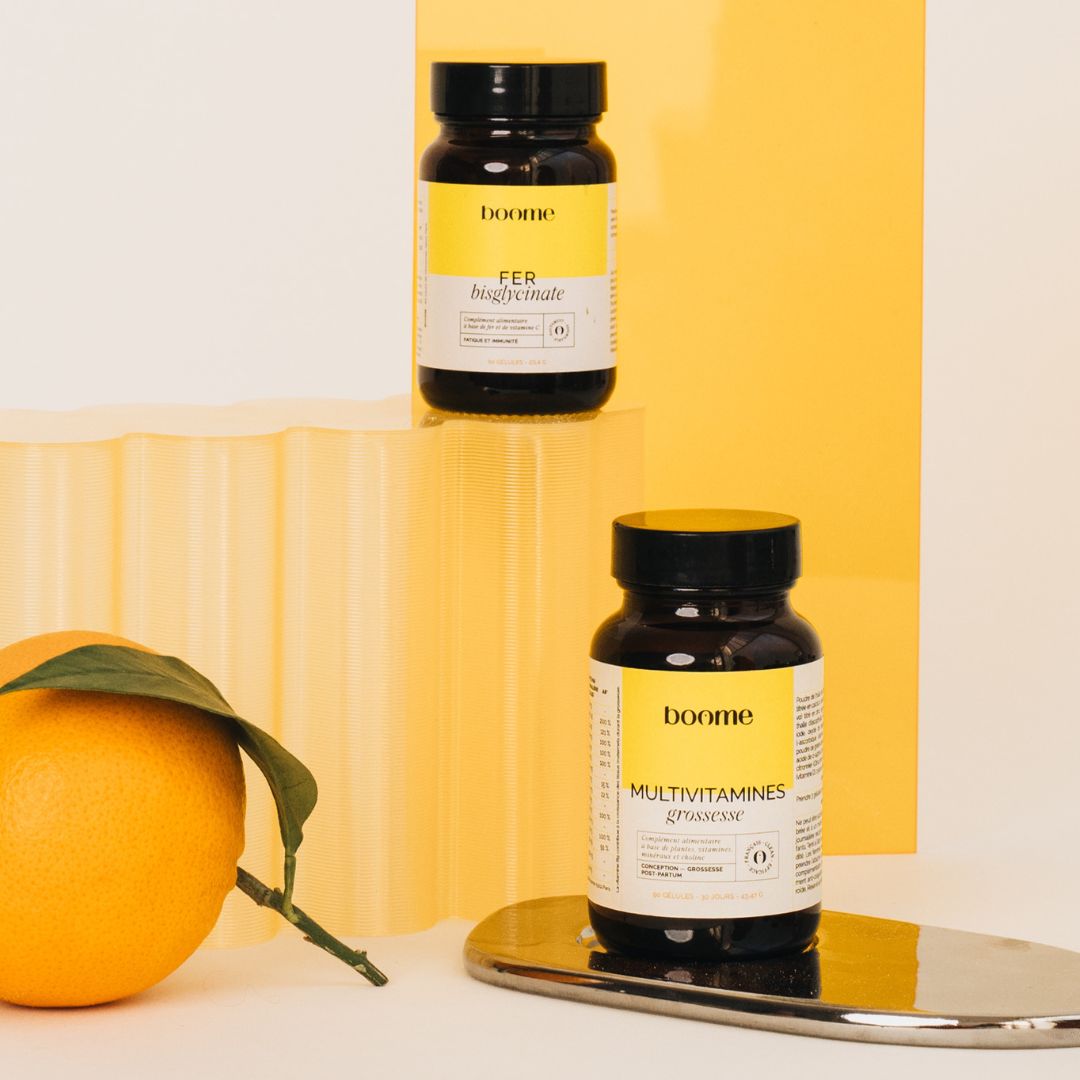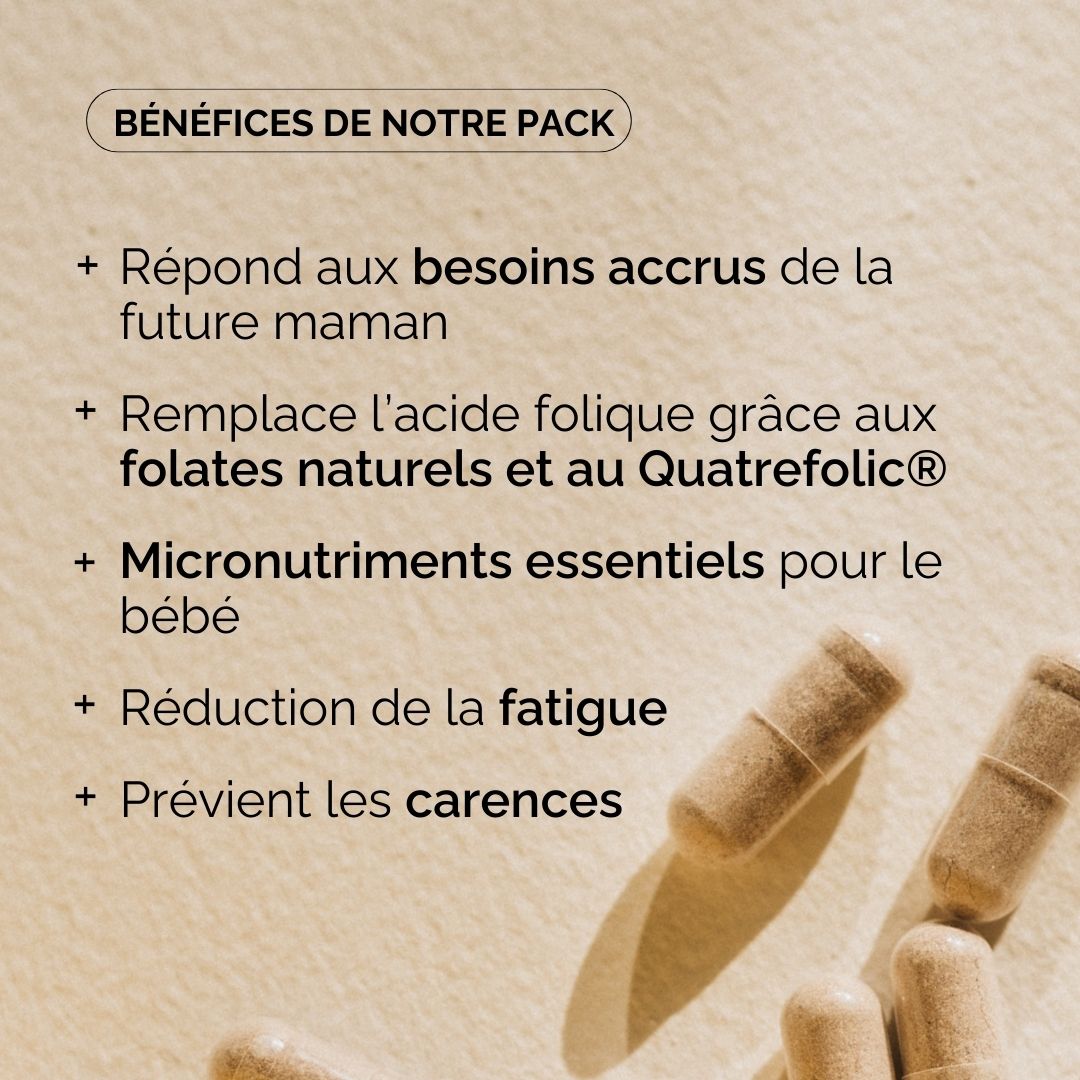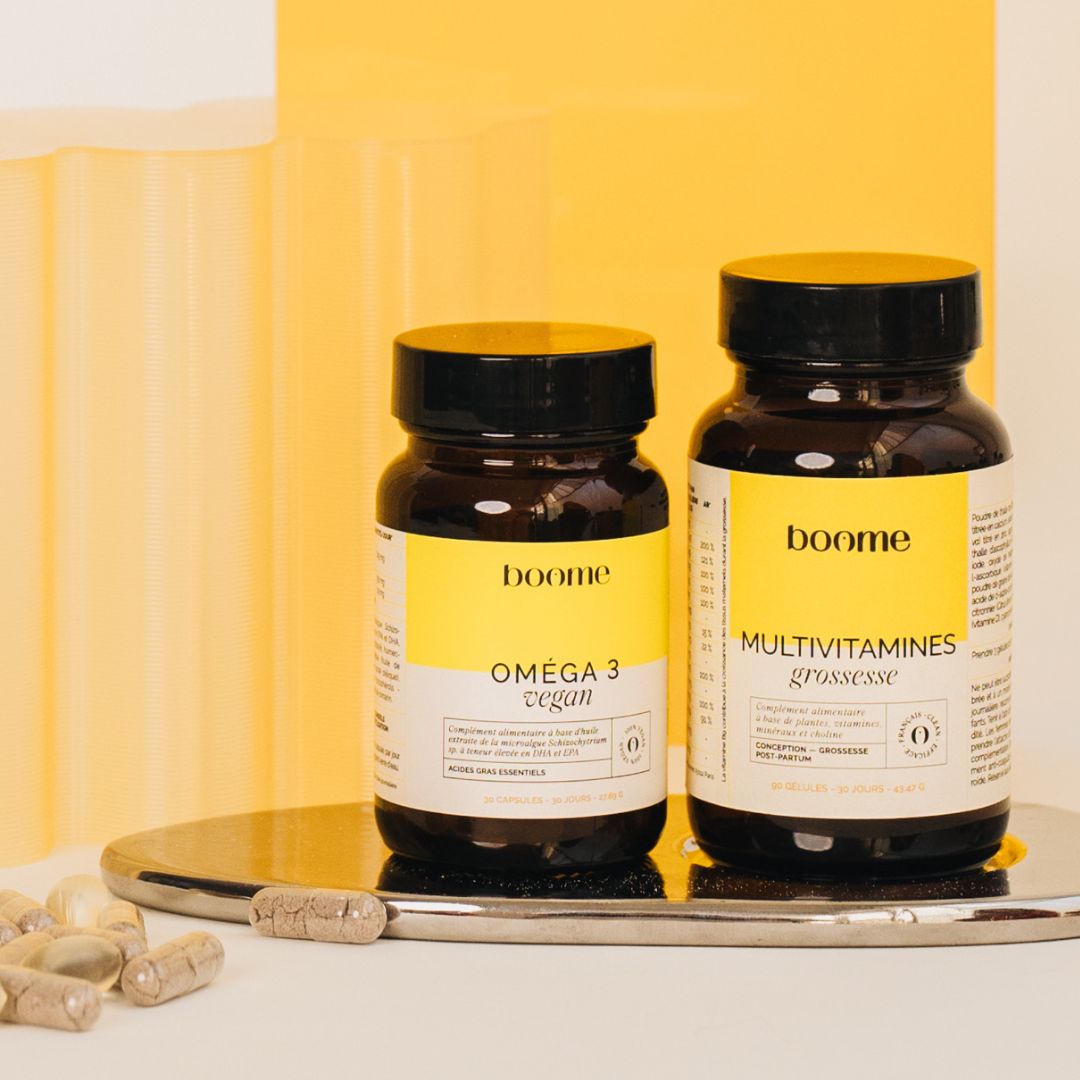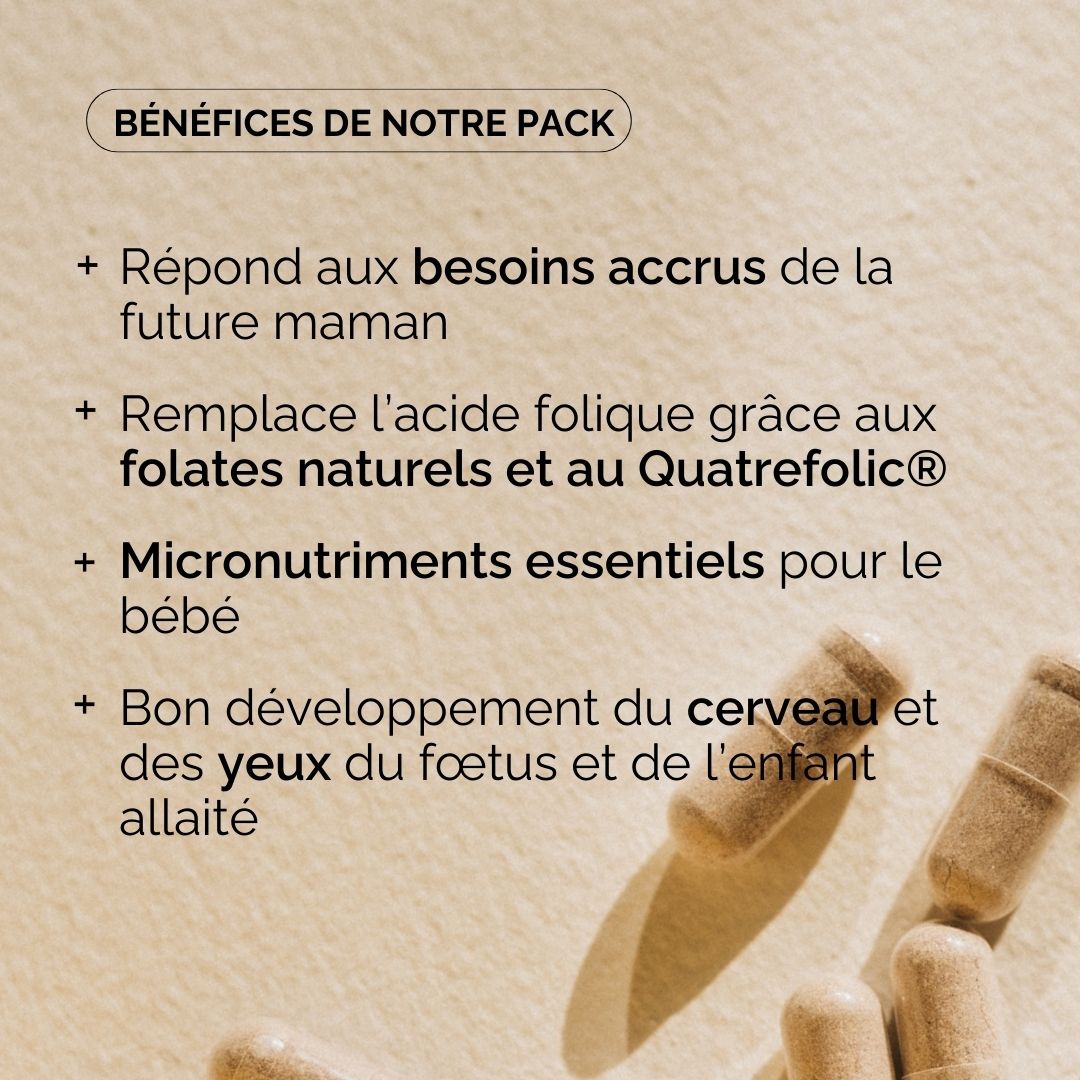Our pregnancy food supplements allow you to experience motherhood with peace of mind, by increasing your reserves of essential nutrients.
...
Pregnancy is our best-selling 100% natural-origin plant-based multivitamin, vitamin, mineral, and patented choline. Our prenatal multivitamin is healthier, more natural, and effective, and can replace the commonly prescribed folic acid at the same dose (400 ug/day).
Iron is ideal for all women who are iron deficient during pregnancy, but also postpartum. Made with patented chelated iron (bisglycinate) and vitamin C to maximize absorption, it helps increase blood iron levels without intestinal discomfort, prevent deficiencies, and combat fatigue.
Our Vegan Omega 3s are derived from microalgae and are Silver Quality certified. They are essential during pregnancy for healthy brain development in the fetus.

